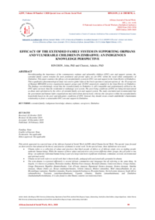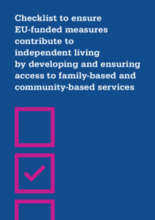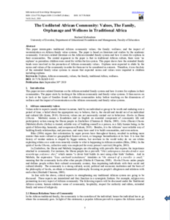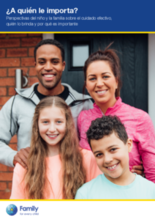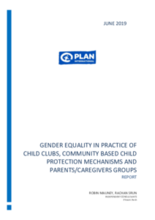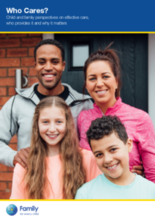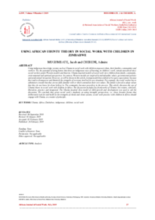Displaying 21 - 30 of 312
This paper examines the efficacy of extended family system in OVC care and support in the Gutu District of Zimbabwe.
This article describes the impact on social services of an innovative model of family care in Moshi, Tanzania, aimed at orphaned children and youth who are affected by HIV/AIDS and their caregivers.
This chapter examines the cultural logic of child care in Africa, focusing on one variation of fosterage, okutekula, among the Ova-ambo in Northern Namibia.
The purpose of this checklist from the European Expert Group on the transition from institutional to community-based care, with Hope and Homes for Children, is to ensure EU funds in the 2021-2027 programming period contribute to independent living and inclusion in the community, including by supporting desk officers to check the consistency of the measures to transition from institutional to family-based and community-based services for children and the prevention of institutionalisation and separation of children, including with disabilities, from their families.
This paper reviews related literature on the African extended family system and how it caters for orphans in their communities.
Pese a que hay un consenso sobre la importancia del cuidado efectivo en las familias para los niños, existe una falta de discusión y acuerdo sobre los componentes precisos de este cuidado. Este informe contribuye a debatir sobre este importante tema al proporcionar perspectivas de los grupos focales con 198 niños y 81 adultos de Brasil, Colombia, Egipto, México, Rusia, Ruanda y Zimbabue.
The purpose of this study is to better understand how gender inequality impacts the Community Based Child Protection Mechanisms in Cambodia, its child clubs and caregiver groups and how programming should be targeted to being gender transformative – changing social norms that promote gender inequality.
There is extensive research demonstrating clearly the importance of a safe and caring family for child wellbeing and development. While there is consensus on the importance of effective care in families for children, there is a lack of discussion and agreement about the precise components of this care. This report contributes to debates on the components of family care by providing perspectives from nearly 200 children and over 80 adults from Brazil, Colombia, Egypt, Mexico, Russia, Rwanda and Zimbabwe. The report demonstrates that there are many commonalities in perspectives on and experiences of care across contexts.
Presented at the UN Human Rights Council side event on Promoting Quality Alternative Care for Children with Disabilities on 5 March 2019, this video highlights the work of ABLE, a program of the Cambodian NGO Children in Families that provides inclusive family-based care for children with disabilities.
This article discusses the use of Ubuntu theory in social work with children in Africa.

